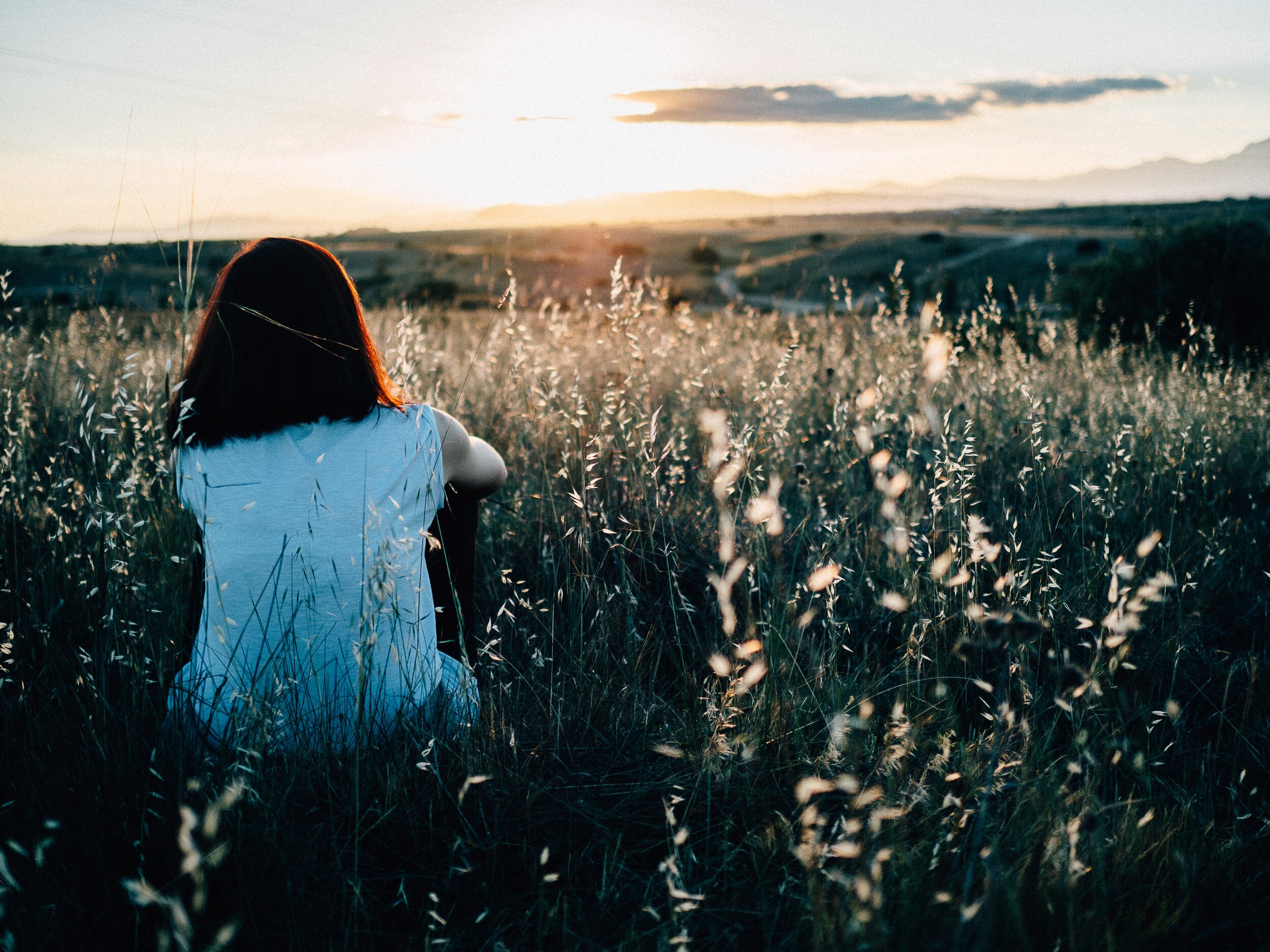Feeling lonely? 6 Ways to help when you’re feeling lonely
Loneliness is a human condition. No one is ever going to fill that space. The best you can do is know yourself; know what you want. - Janet Fitch
Have you ever felt lonely even though you were around other people? Or felt alone despite being in a relationship? If you have, you’re not alone. And, there is help - you don’t have to suffer.
These reactions are actually not uncommon in our lifetimes, but sometimes it’s more serious than the normal bouts of loneliness and can be a sign of going through mental health struggles including trauma.
Understanding the root cause of your loneliness is the first step in learning how to support yourself when feeling lonely.
What is the cause of loneliness?
Besides the obvious reasons for loneliness such as isolation, social distancing, being away from loved ones, losses, break-ups, etc., there are some less obvious reasons that many people are not as aware of.
Less obvious causes of loneliness:
Depression, anxiety, grief, PTSD and other mental health diagnosis can all have symptoms that include feeling lonely. So, if you are around people, yet you are finding yourself feeling lonely, ask yourself if you might be experiencing other symptoms including, fatigue, “on edge”, hopeless, low motivation, avoidance, dread, fear, sadness, low self-esteem, etc. Struggling with mental health can make it difficult to be in the present moment and to feel settled in yourself enough to be able to connect with others. You also might be feeling the stigma of your diagnosis and unsure how it’ll effect your relationships. Maybe you’re finding yourself choosing to isolate more because of the shame you’re feeling (e.g. who it’s safe to tell, worried what others might think, judging yourself or feeling judged by other, etc.)
Relational issues can also be a cause of loneliness. If we are not communicating our needs, wants and desires, we are probably not feeling very seen in our relationship, which often leads to loneliness. This pattern of self-abandonment in relationships can trigger parts of us that feel unworthy of being seen or having needs, denying us of our human needs. If you don’t feel safe to express yourself in your relationship, you might need to evaluate the relationship and seek support; you deserve to have a voice to share your thoughts, feelings and needs in your relationships.
Trauma and experiencing multiple interpersonal ruptures, especially in your childhood (e.g. emotional and physical neglect, any kind of abuse, etc.) can lead to feelings of chronic loneliness, no matter what relationships you have in your life. Feeling lonely is a common symptom of C-PTSD and PTSD and can be a result of your relational trauma.
Facts about being lonely:
Loneliness is a human condition. No one gets away with not feeling lonely at some point(s) in their life.
You cannot solely depend on other people to help you feel less lonely. This is a hard pill to swallow and yet, it’s true. If we didn’t learn this with COVID-19, we need understand it now. We won’t always have access to others and sometimes even when we do have others, they simply can’t be what we need (and that’s not their fault), so it’s important that we understand that loneliness is an inside job.
You don’t have to be alone in order to feel lonely. You can feel lonely and have relationships and people in your life.
Just because you are lonely, it does not mean that you are alone. You might feel alone, I get it, but often when we are in a lonely state we have tunnel vision and can’t really see all the potential support around us.
You cannot die from being lonely. But, it does have negative effects on one’s health and consequently, can decrease one’s lifespan. Researchers have found that loneliness is just as lethal as smoking 15 cigarettes per day and that lonely people are 50 percent more likely to die prematurely than those with healthy social relationships.
OK, so now that we know the causes and consequences of loneliness, what can we actually do when we feel lonely? Keep reading to learn 6 things that you can start doing right now to help you when feeling lonely.
What can you do when feeling lonely?
6 Ways to help when you’re feeling lonely:
Connect to your breath. Just breathe naturally and effortlessly; no need to change or manipulate your breath. Feeling lonely is experienced as a felt sense so it’s important to soothe yourself when you are feeling lonely. Loneliness can activate parts of us that feel abandoned, scared, unworthy, etc.; these states tend to dysregulate our nervous systems bringing us into a fight, flight or freeze response. By focusing on your breath, you are helping to regulate your nervous system so that you can feel less overwhelmed in the moment.
Name your lonely part. Think of your loneliness as a “part” of you, just like you have a responsible part, weekend part, lazy part, etc. Once you can get with this idea that you have a part of you that feels lonely, notice how that part looks to you (e.g. does it look like you? or maybe a different form, shape, color, etc.), how you feel towards it (e.g. sorry for it, annoyed with it, frustrated by it, angry, guilty, etc.) and ask it how old it is (this might feel odd, but trust me, you’d be surprised what comes up here - even if nothing, ask it from time to time).
Ask the lonely part of you what it needs from you. When you do this step, imagine the part that feels lonely sitting across from you and ask it what it needs from you. Even if nothing specific comes up, this is important because it shows you that your needs matter. When we connect and attune to ourselves and our needs, we tend to depend less on other people for our happiness and wellbeing. Sure, we need people in our lives and it’s perfectly healthy to depend on others; however, if it is our only means of happiness and wellbeing, then it has an unhealthy quality to it that is not sustainable.
Meditate. Meditation can help us get in touch with ourselves when we’ve been feeling disconnected. Practicing meditation consists of tuning into our breath and body, observing our thoughts and emotional reactions rather than getting absorbed by them. Practicing meditation regularly can help us gain more awareness and control over ourselves and our reactions. We can learn to hold space for our lonely parts vs. feeling this urgency to “fix” it. Part of healing the part of us that feels lonely is an ability to learn to sit with yourself and your inner-world, so that you can learn more about your needs. Learn more about the meditations I offer here.
Journal or Draw. Writing and drawing helps us process our emotions by externalizing them (getting them outside of our heads and bodies) so we can look at them vs. being flooded by them. There’s no wrong way to do this step, so just do it in a way that feels natural to you.
Connect to a loved one. We are wired for connection. But, not connecting through social media scrolling - I mean quality connection where we feel truly seen by another person. Be honest and share how you are feeling with a safe person. We need others for our survival and like I said above, it’s OK to depend on others (to a healthy extent.) If you can, meet up with someone so that you can co-regulate. When we are in the physical presence of another, we release oxytocin and dopamine (yay! good feeling hormones). If meeting up in-person is not an option, you’ve got other great options (and, yes, we still release the good feeling hormones!):
Video chat or Phone call
Reach out and text, especially if you’re not used to initiating conversations
Write a card or letter to someone ‘just because’
Look at pictures that remind you of good memories with others
“Sometimes, you find yourself in the middle of nowhere, and sometimes, in the middle of nowhere you find yourself.”
Remember, everyone will experience loneliness at some point(s) in their lives, and that does not mean that you have to suffer alone. If you find yourself struggling and feeling no relief or you want more support, contact me here if you’re in California to see if we’re a good fit to work together. You can also access my Inner-Child Healing Meditations here that are specifically designed for this type of work, especially if you notice that the parts of you that feel lonely tend to feel younger.



